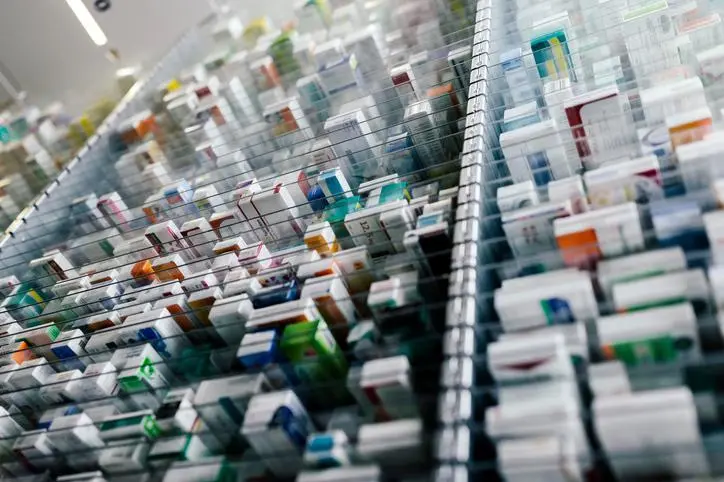PHOTO
One of the biggest shortcomings of the global pharmaceutical industry — and indeed a failure of governments and multilateral bodies — that has been revealed during the COVID-19 pandemic is the intense concentration of facilities for manufacturing vaccines, as well as medicines and other medical products, in a handful of spots around the world.
Even as the pandemic ravaged the world, few countries or regions had the capacity to take the necessary steps to counter the virus — be it producing vaccines to protect against it or drugs that could curb its effects.
While vaccines were rapidly developed in the US and Europe, thanks to a robust research and development ecosystem and huge pharmaceutical industries generously lubricated into action by billions of dollars of direct assistance from governments.
Eventually, a few other countries caught up and now vaccines developed in about a dozen nations are being injected into arms around the world. But as soon as the vaccines were developed, Western nations immediately bought up, and even hoarded, billions of doses by paying their drug companies in advance for supplies.
It was many months before many countries in other parts of the world had access to the lifesaving vaccines. Some could be waiting for years for adequate supplies. While many developed nations only had to contend with vaccine shortages up until the middle of 2021, others, most notably impoverished countries such as those in sub-Saharan Africa, still face shortages and are likely to continue to do so well into 2022, even though the pandemic appears to be significantly easing in many parts of the globe.
Sure, vaccine shortages have played a part in these delays in supplying some countries but another very important factor has been the logistical problems associated with transporting these highly sensitive products over thousands of kilometers and storing them properly.
The “missing last mile” of connectivity in the delivery of medicines is a challenge many healthcare experts have long been warning about, even when vaccine production levels are high enough to meet the global demand.
Potential solutions to this connectivity challenge are complex, because setting up plants to manufacture medicines or vaccines is traditionally a very expensive and time-consuming process that often cannot be justified by business opportunities, especially in remote or underdeveloped parts of the world.
BioNTech is developing a manufacturing plant, built to stringent German standards, that can be shipped anywhere in the world.
Ranvir S. Nayar
Little effort has gone into finding solutions to this challenge, as drug manufacturers have little incentive to do so and the governments in developing countries are not wealthy enough to fund such efforts.
But there is hope. BioNTech, the German company that was one of the first to develop a COVID-19 vaccine, in collaboration with US pharmaceutical giant Pfizer, has been working on a process that could revolutionize the localization of drug and vaccine manufacturing around the world.
In a sense, BioNTech is developing a manufacturing plant, built to stringent German standards, that can be shipped anywhere in the world and simply “plugged in” to begin producing its vaccine. Indeed, the German firm is using shipping containers as the basis for these mini-plants. It is developing modular processes to install in a small number of containers that can be shipped to any part of the world and will produce the same quality of vaccine as is being manufactured in Germany and the US.
BioNTech hopes to test the containers, called BioNtainers, in an African nation on a pilot basis before the end of the year. If this goes well, manufacturing could start next year. Though it might be too late to have much effect on this pandemic, the move is nonetheless a welcome one as it could boost the capacity of African nations to deal with the next global health crisis.
In addition, this containerized approach to manufacturing could be very beneficial for the production of other medicines and vaccines. BioNTech already hopes, for example, to use its containers to manufacture a vaccine it is developing to treat malaria, a disease that ravages tropical countries, most of them very poor, killing millions of people each year.
The move to develop a vaccine to protect against malaria is therefore very welcome and long overdue. It is time for other pharmaceutical companies also to adopt the BioNTech approach and finally get around to tackling some of the other diseases, such as tuberculosis, that continue to claim millions of lives each year in poorer countries.
Such an innovative approach would not only help to bridge gaps in access to medicines between rich and poor nations but would also make it easier to improve manufacturing capabilities in the places they are needed most, through facilities that can be moved from region to region and quickly deployed in case of disaster or a localized outbreak, as has been seen with Ebola in West Africa.
The ease of operation and the flexibility provided by manufacturing facilities that can be easily transported would go a long way toward addressing some of the biggest global healthcare challenges and, indeed, could revolutionize the sector like few other innovations.
It is time not only for other drug manufacturers to follow BioNTech’s lead but for governments and multilateral organizations to encourage the trend.
• Ranvir S. Nayar is managing editor of Media India Group.
Disclaimer: Views expressed by writers in this section are their own and do not necessarily reflect Arab News' point of view
Copyright: Arab News © 2022 All rights reserved. Provided by SyndiGate Media Inc. (Syndigate.info).





















